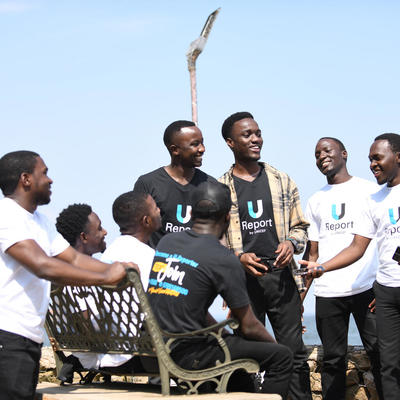
UNICEF's U-Report Communities of Action, in partnership with S4P (Solutions for People) Group, has effectively strengthened polio vaccination awareness across ten districts in Uganda. By training youth as community mobilizers, over 14,000 parents and caregivers, along with more than 10,000 students, were reached, increasing immunization coverage and overcoming vaccine hesitancy. Leveraging innovative digital tools like the Fundoo chatbot and involving local stakeholders, the initiative successfully engaged communities, highlighting the vital role of young people in health promotion and disease prevention.
Photo: U-Reporters discuss strategies to mobilize communities and promote polio vaccination across Uganda.
Empowering Communities through Youth-Driven Vaccination Awareness
In a remarkable demonstration of community engagement and youth leadership in Uganda, UNICEF has partnered with S4P (Solutions for People) Group to strengthen routine immunization services across ten districts: Mbale, Mbale City, Soroti City, Kamuli, Tororo, Amudat, Busia, Iganga, Jinja, and Jinja City. Through the U-Report Communities of Action initiative in Uganda, young people are taking an active role in promoting polio vaccination, overcoming vaccine hesitancy, and making a real impact on public health. The U-Reporters supported the polio campaign for Round 1 from October 3 to 6, 2024, playing a crucial role in making this initiative successful. This effort is bringing together U-Reporters, local authorities, health workers, and community members to increase vaccination coverage and ensure no child is left behind.
Building Capacity: Training of Trainers
From September 25th to 27th, 2024, UNICEF and S4P organized a Training of Trainers (ToT) workshop at the Protea Hotel in Entebbe. Thirty-three young U-Reporters were trained on Social and Behavior Change (SBC) communication strategies, the importance of vaccination, values clarification, and monitoring and evaluation. The interactive training, which featured role-plays and group discussions, ensured that the trainees were well-equipped to take these concepts back to their districts.
Following the workshop, twenty top participants were selected to become Trainers of Trainers, each assigned to specific districts to lead further local mobilization efforts. These youth leaders were tasked not only with sharing knowledge but also with empowering others to become advocates for immunization.
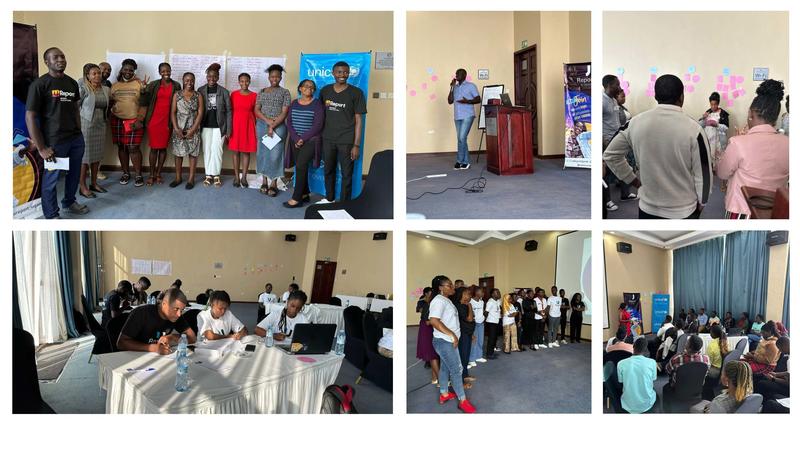
Photo: Youth mobilizers receive training on social behavior change and vaccination outreach to support Uganda’s polio campaign (25-27 September 2024).
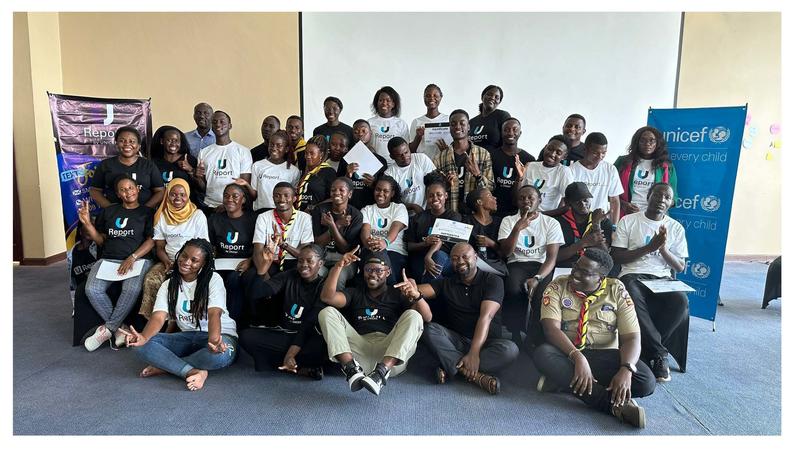
Photo: Graduates of the U-Report Training of Trainers workshop prepare to lead polio vaccination efforts in their districts.
District-Level Training and Mobilization
With guidance from S4P representatives and district health officials, these newly trained youth mobilizers facilitated training for additional U-Reporters across the target districts. Each of the twenty Trainers worked closely with 25 district U-Reporters, resulting in the creation of local teams capable of effective community outreach. District entry meetings, coordinated with local stakeholders like District Health Educators, provided a critical link to the broader health infrastructure, ensuring a unified approach to the vaccination campaign.
Using a highly participatory approach, the district-level training sessions were designed to be flexible, responsive to local needs, and engaging for the youth participants. In addition to theoretical learning, participants took part in field pre-tests where they put their newly acquired skills into action, reaching out to families, markets, and community gathering spots to spread awareness and distribute informational materials.
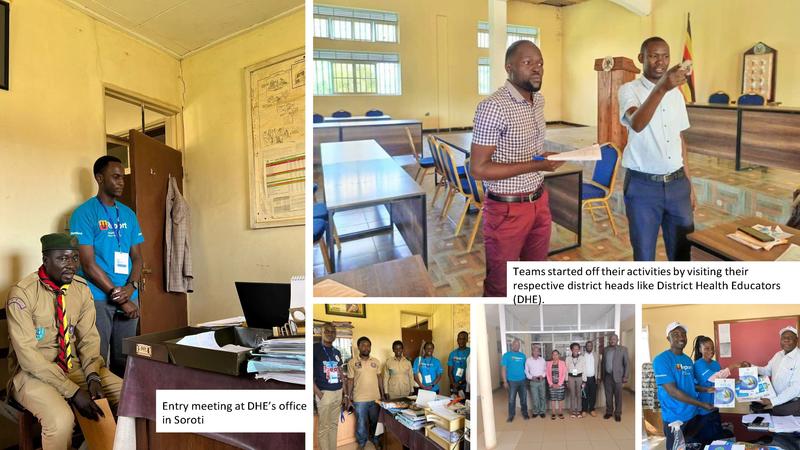
Innovative Mobilization Strategies
The U-Report Communities of Action used a variety of creative strategies to engage the public and mobilize communities for vaccination. One of these new solutions, developed in collaboration with young people, was the use of digital tools like the FunDoo chatbot to share information and guide youth mobilizers.
FunDoo is a chat-based, interactive skills-building platform available through the U-Report social messaging service. It helps young people build 21st-century skills and prepare for their careers. Through bite-sized content, young people complete small activities that help them develop life skills. The FunDoo curriculum is based on UNICEF’s 21st Century Skills framework and uses experiential learning principles through “tasks.” The content is bite-sized, gamified, follows a learning-by-doing approach, and can be completed at home. UNICEF Uganda is providing multiple pathways for adolescents to gain skills, both online and offline. FunDoo adds an online learning option, expanding the skilling program to urban and semi-urban adolescents and young people. FunDoo focuses on empowering young people with 21st-century skills, encouraging them to transform their lives, uplift their communities, and make a positive impact on the world—all through fun, engaging experiences.
The young leaders also used coupons as an incentive, giving parents of vaccinated children tokens to encourage them to spread the message further. With a focus on inclusivity, these mobilization efforts reached a wide range of groups, from families at home to students in schools.
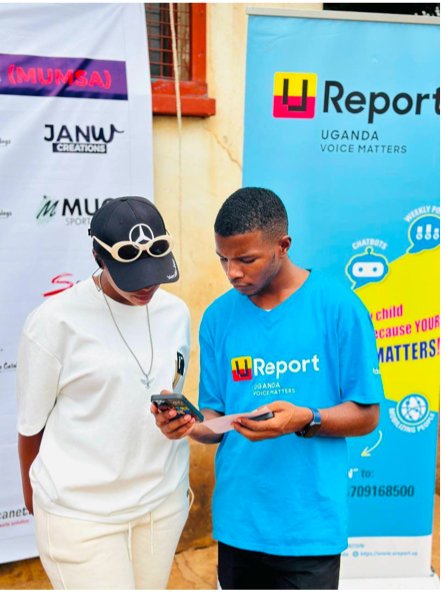
Photo: U-Reporter showing the youth how to subscribe to Fundoo chatbot.
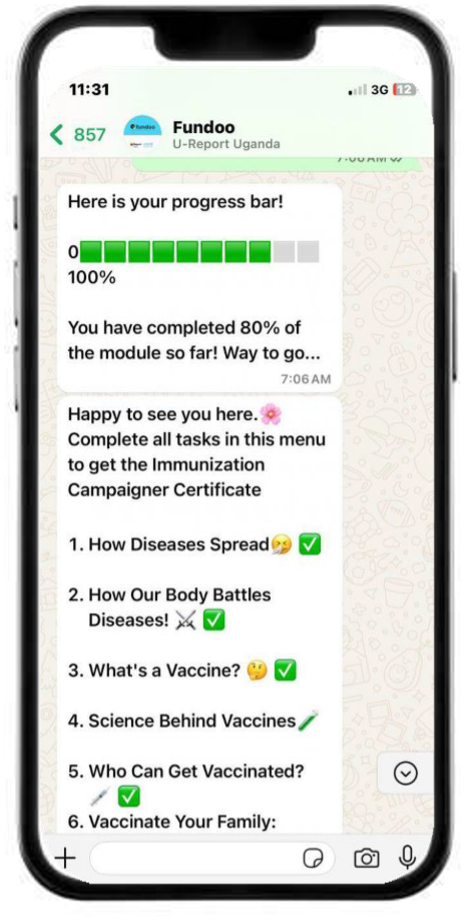
Photo: Screenshots of a subscriber trying to complete a module on Immunisation.
The team shared targeted materials through posters, radio shows, and interpersonal communication. They also mobilized in schools, where students became advocates, encouraging their peers and families to participate in the vaccination efforts. Overall, the U-Reporters and Scouts mobilized over 4,600 male students and 5,800 female students across the districts, fostering a culture of health promotion within educational settings.
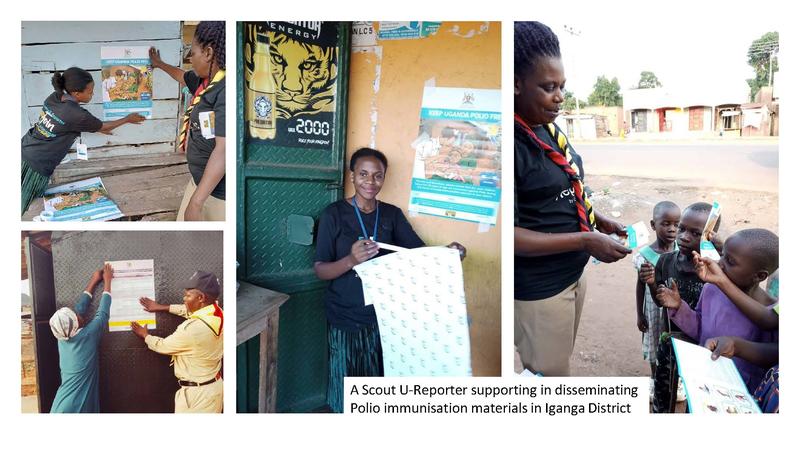
Engaging the Community: The Power of Local Voices
A key aspect of the mobilization was the collaboration with local district officials, health workers, and the Scouts Association. District Health Educators joined planning meetings, facilitated entry into the communities, and supported the mobilizers during key activities. In Tororo district, for example, the Scouts and U-Reporters worked hand-in-hand to increase local participation, organizing community meetings and talk shows on East FM to discuss the importance of the polio campaign and the role of U-Report.
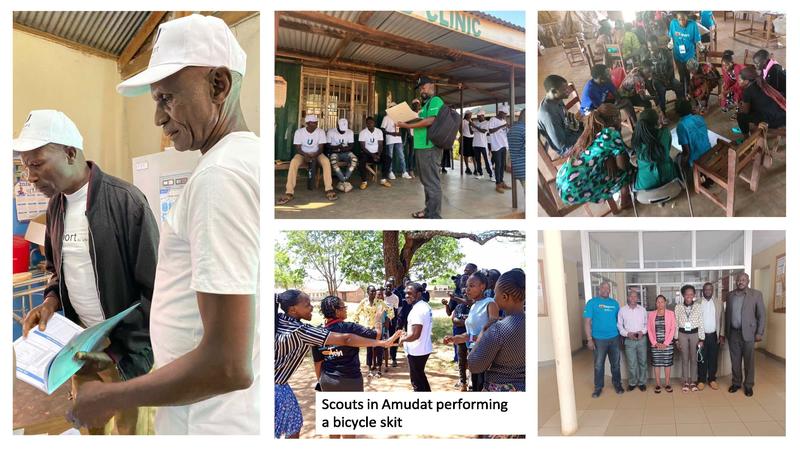
Among the mobilizers was Ahaadi Rebecca, a refugee who joined the campaign to help bridge the gap between communities. Rebecca shared her experience, highlighting the similarities and differences between healthcare in Uganda and Rwanda and expressing her gratitude for the opportunity to contribute positively to the healthcare system in her host country.
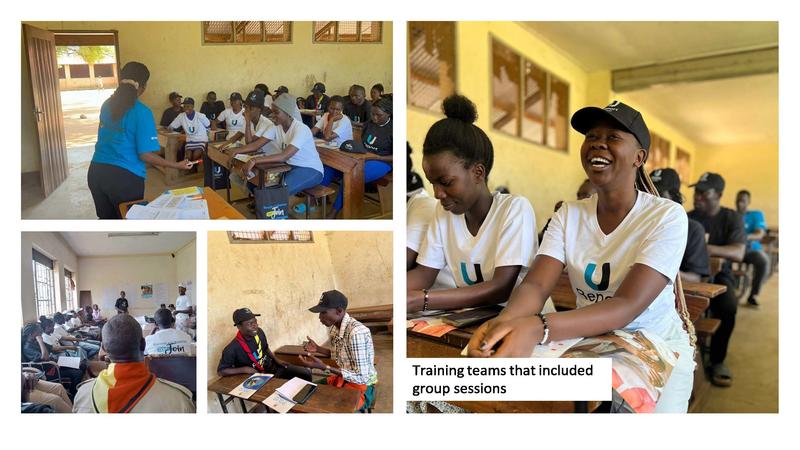
Achievements and Challenges
The U-Report-driven vaccination campaign was successful in improving vaccination coverage in all ten districts. A total of 14,433 parents and caregivers and 10,434 students were mobilized for the Polio campaign. Collaborative planning sessions with local stakeholders ensured inclusive participation, and partnerships with health workers helped track distributed coupons and monitor immunization coverage.
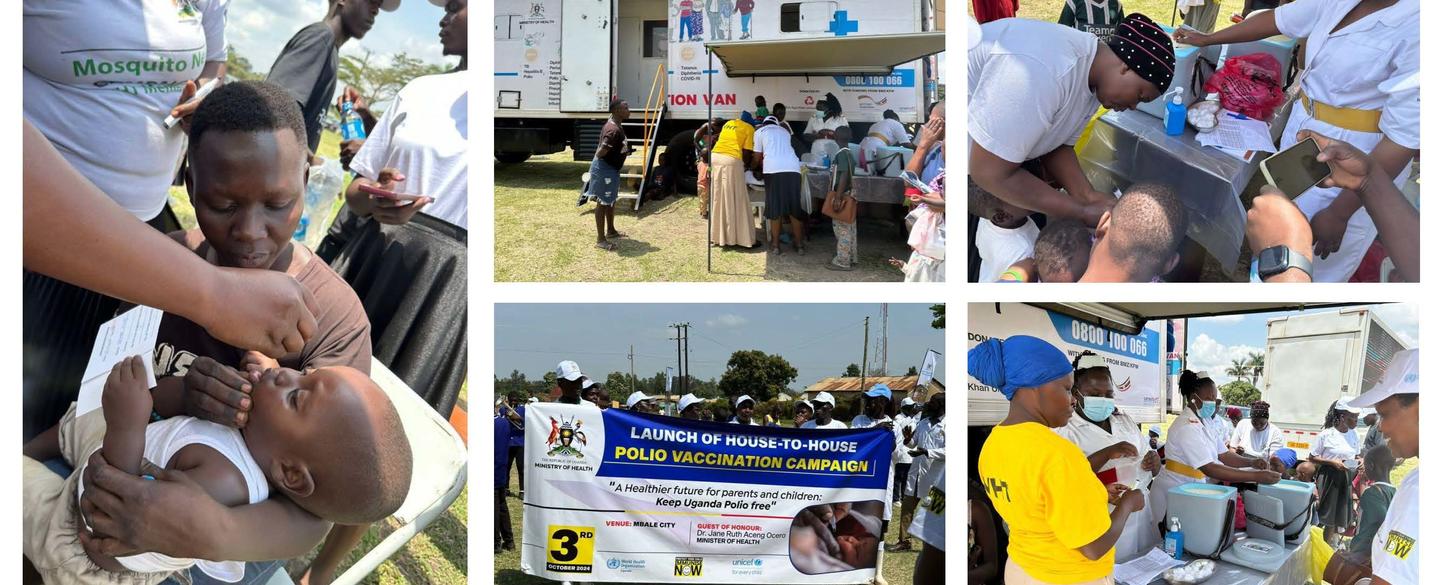
Photo: Health workers and youth mobilizers deliver polio vaccines during a campaign reaching families across Uganda.
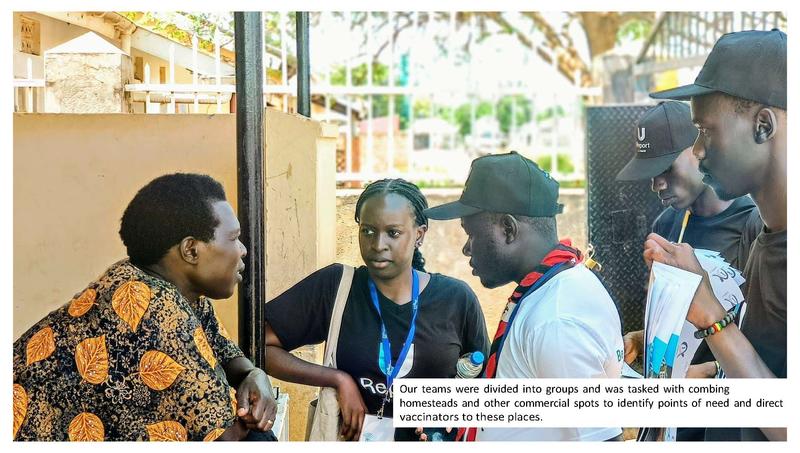
The campaign faced some obstacles that were met with innovative solutions. Although limited access to smartphones presented a hurdle for participation in the U-Report platform, and some mobilizers had other commitments, the team showed great adaptability. The youth leaders found ways to creatively address financial expectations and enhanced coordination with partners. Their resilience and the campaign's collaborative approach led to positive solutions, such as mapping key communities early and engaging community groups during the initial stages.
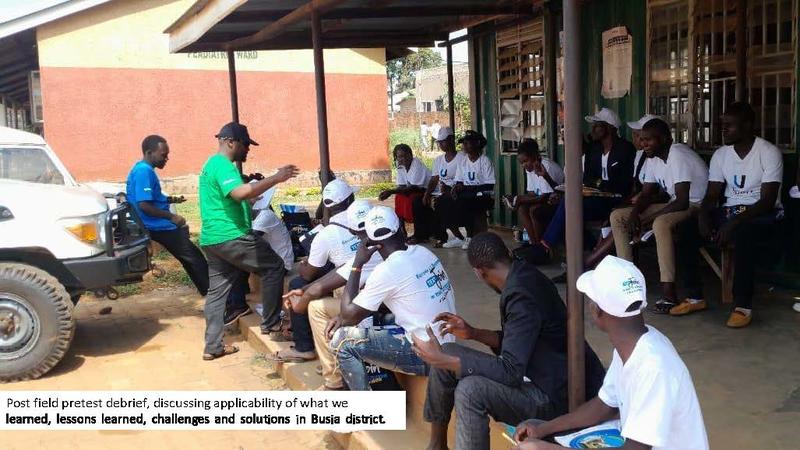
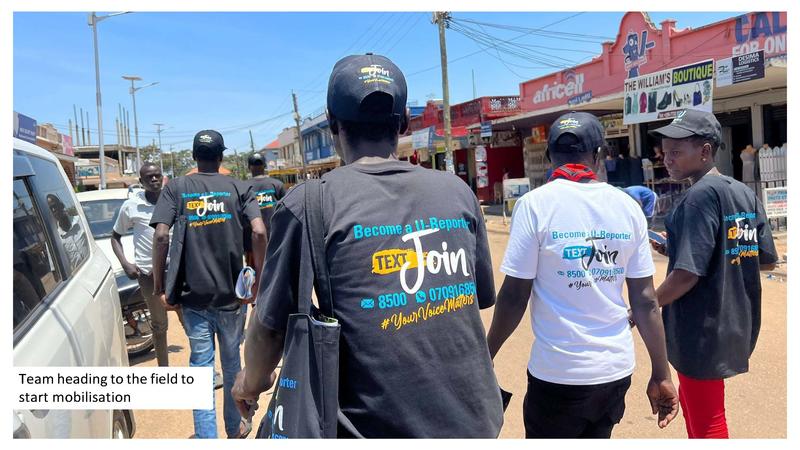
Moving Forward
UNICEF and its partners are committed to building on the successes of this campaign. Continued community mobilization efforts, as well as ongoing recruitment and training of U-Reporters, will help sustain the momentum. An after-action review is planned to ensure that lessons learned from this campaign can be integrated into future initiatives, further improving the reach and effectiveness of immunization programs.
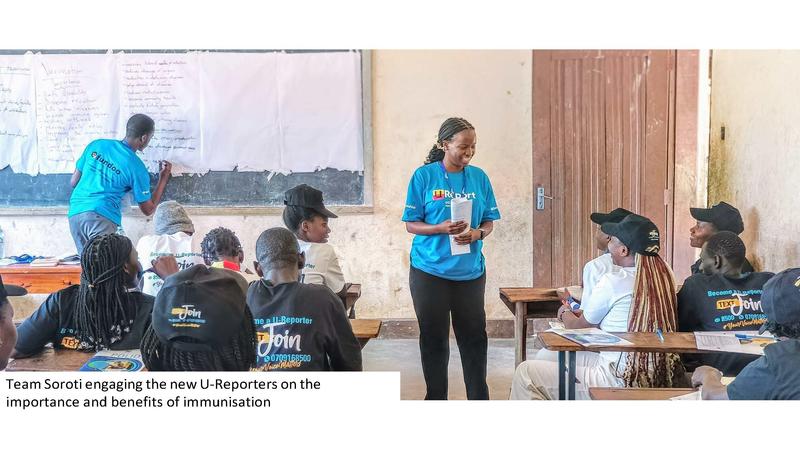
The U-Report Communities of Action have shown that young people, when empowered and supported, can be powerful drivers of change. Their energy, creativity, and deep connection with their communities have proven instrumental in increasing vaccination rates and overcoming barriers to health access. Through initiatives like this, UNICEF continues to work toward a world where every child is protected from preventable diseases.
Photos: UNICEF Uganda/2024
Report by UNICEF Uganda, October 2024
Story written by Daria Shubina, UNICEF NY HQ Polio SBC Knowledge Management Specialist

